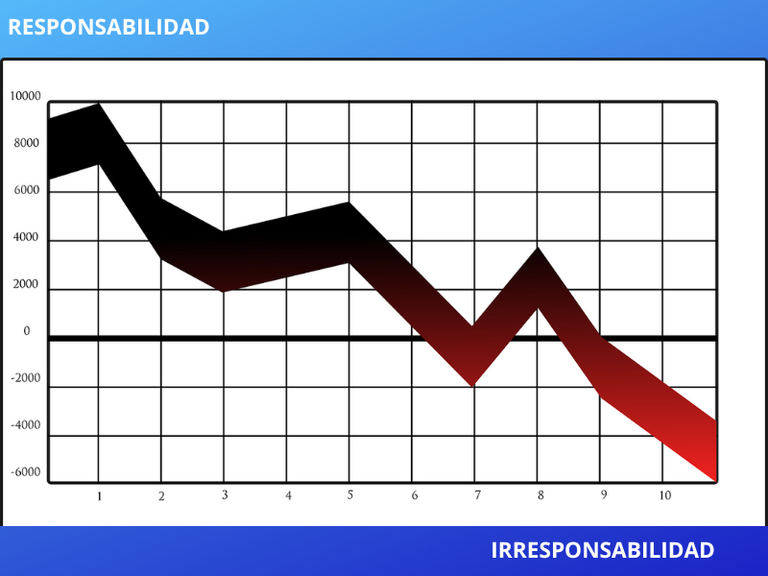

¿Quién no quiere ser feliz en esta vida que tenemos? La mayor satisfacción que podemos tener en la vida, es desear lograr la felicidad y conseguirla. El mayor anhelo de un ser humano es que, de pronto, se cumplen todas y cada una de tus expectativas. Cuando estas satisfecho, vibras, te enciendes de alegría y bienestar, porque te sientes bien con lo que has logrado. En ese momento no encontramos detalles por donde se cuele un defecto, incomodidad o el desasosiego. Es una de la emociones más excitante por que nos da mucha felicidad. Mis momentos más satisfactorios fueron cuando me gradué como contador público, fui a la fiesta de la promoción y adicional arme un rumbón en el salón de fiesta de mi apartamento. Mi fiesta de matrimonio también fue inolvidable, así como el nacimiento de mis tres hijos. Es una emoción indescriptible.
Si bien fueron satisfacciones momentáneas, de algún modo, me dieron cierto gozo y sensación de equilibrio. Otras emociones satisfactoria fue estar en trabajos donde hacia el papel de auditor y donde recompensaban mis esfuerzos, por un tiempo fui miembro activo del movimiento de cursillos de cristiandad, un movimiento apostólico de la iglesia católica donde compartía en las actividades con los compañeros tiempo de calidad , y también un periodo en que mis hijos pertenecían a un grupo scout donde hacían actividades de escultismo y donde compartíamos con ellos actividades especiales y campamentos. Como otras emociones la satisfacción es una reacción psicofisiológicas que tenemos como respuesta a estímulos externos que nos da la felicidad de que se cumplan las expectativas que tenemos. Estos impulsos producen una alteración de nuestro ánimo por un periodo corto, pero pueden tener gran intensidad, por eso esos recuerdos quedaran imborrables en mi memoria, como unas de las etapas más bellas de mi vida. En las emociones influyen las experiencias, interpretaciones y reacciones que hemos tenido desde nuestro nacimiento. Existen emociones positivas y emociones negativas. La satisfacción se encuentra entre las emociones positivas por estar relacionadas con sentimientos o reacciones agradables y estimulantes al igual que la alegría, el optimismo, el amor, la felicidad, vitalidad, energía, entusiasmo. Las emociones negativas son sensaciones desagradables, y se dan en medio de circunstancias consideradas como una amenaza o desafío, por ejemplo: la tristeza, la rabia, el odio, la amargura, entre otras. Ambos tipos de emociones son normales en nuestra vida. Durante la vida van a haber sucesos que van a generar emociones positivas y negativas. El predominio de las emociones positivas es una señal de una existencia sana y feliz, pero en momentos específicos podemos tener emociones negativas. Es importante gestionar las emociones negativas, con auto control, y sin dejarlas permanecer por mucho tiempo. El pensamiento, la emoción y la conducta es el círculo vicioso que hay detrás de cada estado en el que nos encontramos. Pensamientos positivos, generan emociones positivas y conllevan conductas positivas. Por el contrario, pensamientos negativos, generan emociones negativas y conllevan conductas negativas.

Podemos desarrollar estrategias para contrarrestar el efecto de esos factores, ejemplo la economía del país se estanca, entonces decido emigrar a otro país o en el trabajo ya no puedo avanzar a otro nivel en la estructura de la organización, pues busco otro donde pueda lograr otros niveles más altos dentro de la organización. Puede ser que nuestra libertad queda limitada, por sobre entender el desinterés de la ayuda de alguien, lo que quiero decir es que nos ofrecen una ayuda pero al final nos quieren cobrar el favor, de esa forma nos indican que no teníamos control de nuestras vidas en ese momento, ya sea en el plano emocional o económico y lo que logramos se lo deben agradecer a ellos. Esas situaciones nos hacen depender de ellos, por no habernos preparado, por estar en una zona de confort.


Gracias de antemano.





We can develop strategies to counteract the effect of these factors, e.g. the country's economy stagnates, so I decide to emigrate to another country, or at work I can no longer advance to another level in the organisation's structure, so I look for another one where I can achieve higher levels within the organisation. It may be that our freedom is limited, because we understand the disinterest of someone's help, what I mean is that they offer us help but at the end they want to charge us for the favour, in that way they indicate that we had no control of our lives at that moment, either emotionally or economically and what we achieve we have them to thank for it. These situations make us dependent on them, for not having prepared ourselves, for being in a comfort zone.


As I mentioned earlier, when we feed negative emotions through conversations, they expand. If we don't feed negative emotions they die, they die out. The most appropriate, healthy and mature decision for a person is to nip negative emotions in the bud. And go on with life. The greatest satisfaction we can have is to let go of negative emotions.
The key is to take responsibility for what happens to us, we must eliminate the assignment of blame for something that happened to us, to something or someone. If we eliminate only some memories that feed certain negative emotions and not all of them due to personal ego or grudges, we are locked in a vicious circle. We must eliminate or annul all memories that cause us emotional trauma. Otherwise we will be like the toy carts that when a wheel gets stuck, instead of going straight, they turn in a circle. The jammed wheel represents the negative emotion that keeps us from moving forward. That is why we see people with great titles, success in a certain area of their life, but they do not manage to have a satisfying life, because there is a negative emotion holding them back.Thank you in advance.

The rewards earned on this comment will go directly to the people( @elisaday7 ) sharing the post on Twitter as long as they are registered with @poshtoken. Sign up at https://hiveposh.com.
Gracias por tu apoyo
👍Veo que tu artículo es interesante y ofrece una perspectiva valiosa sobre la importancia de las emociones en nuestras vidas.
Destacas lo importante que es el recordar que tanto las emociones positivas como negativas son normales y necesarias para nuestra existencia, y que aprender a manejarlas adecuadamente puede mejorar nuestra calidad de vida.
Te Felicito por tu reflexión y por compartir tus experiencias personales.🌟🌟🌟
Muchas gracias por tu apoyo.
👍🌟
Post votado por la Curación de la Comunidad de Mundo Virtual. Recibes algunos Huesos
Te invitamos a que conozcas nuestra Comunidad de Hive
Gracias por tu apoyo